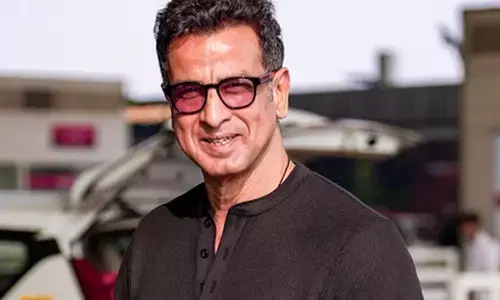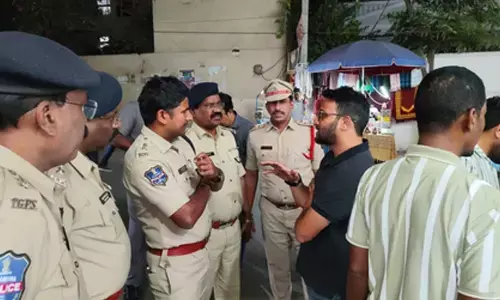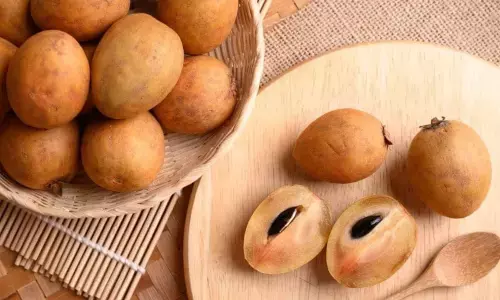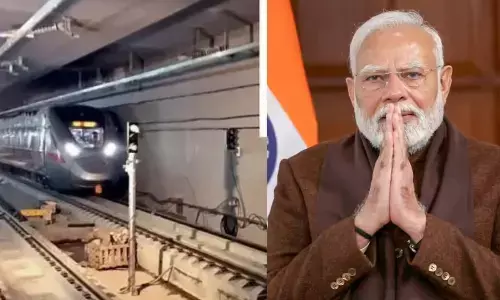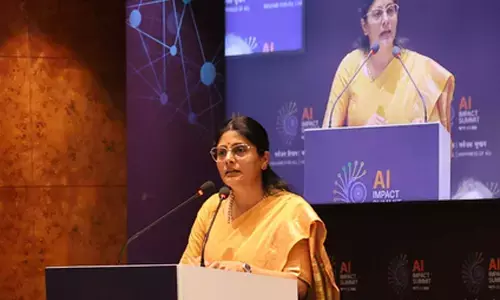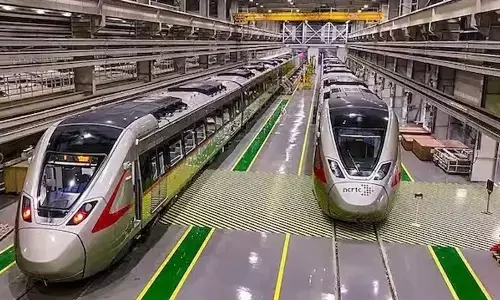Covid-hit tourism sector may remain dormant longer: Balmer Lawrie chief
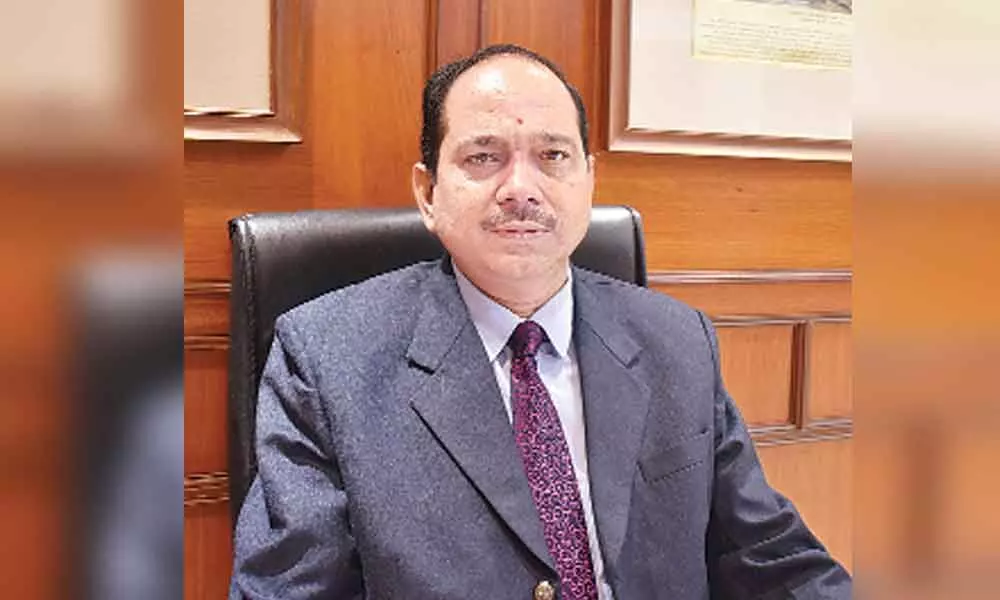
Adika Ratna Sekhar, Chairman & MD, Balmer Lawrie
Says the lockdown has impacted businesses significantly. However, amidst all the challenges, the company managed to remain a profitable organisation
Balmer Lawrie, a Miniratna-1 PSE under Union Ministry of Petroleum and Natural Gas, has its presence in both the manufacturing and service sectors – greases and lubricants, industrial packaging, chemicals, logistics (Infrastructure, services, cold chain), travel and vacations and refinery and oil field services. In an exclusive interview with Bizz Buzz, Adika Ratna Sekhar, Chairman & MD, Balmer Lawrie, said: "The Covid-19 pandemic has undoubtedly posed unique challenges that have thrown us out of gear and affected our growth and profits deeply. Our travel and vacations business was the worst hit. There is a drop in outbound travel owing to restrictions imposed by many countries"
The Miniratna under the Union Ministry of Petroleum and Natural Gas, Balmer Lawrie is present in eight businesses - travel and vacations, industrial packaging, greases and lubricants, leather chemicals, logistics, logistics infrastructure, logistics services, and refinery and oil field services. Which of these verticals have been more severely impacted by the pandemic and how are you planning to come out of it?
We have strong presence in both the manufacturing and service sectors – greases and lubricants, industrial packaging, chemicals, logistics (Infrastructure, services, cold chain), travel and vacations and refinery and oil field services. The Covid-19 pandemic has undoubtedly posed unique challenges that have thrown us out of gear and affected our growth and profits deeply. The lockdown has impacted businesses significantly. However, amidst all the challenges, we managed to remain a profitable organisation. We ensured business continuity in most of our businesses during the lockdown, with logistics infrastructure and services being fully operational and catering to all customer needs round the clock.
Our travel and vacations business was the worst hit. There is a drop in outbound travel owing to restrictions imposed by many countries. Group and leisure travel have almost stopped owing to the fear of being infected. Air travel has fallen drastically affecting the topline of airlines and have forced air carriers to operate under 'survival mode'. There is widespread loss of jobs and the health of the industry has been affected very badly. This has resulted in less incentive, commission and PLB for us. As the corporate workforce adjusts to a more virtual and remote working environment, with significantly reduced business travel, large global events and MICE (Meetings, Incentives, Conferences and Exhibitions) tourism have nosedived and will remain dormant for some time for sure.
The container freight stations (CFS) business of the logistics SBU had been suffering for quite some time. Any plans on that?
Balmer Lawrie is a significant player in the logistics segment with state-of-the-art Container Freight Stations (CFSs) at Mumbai, Kolkata and Chennai and warehouses at Kolkata, Visakhapatnam and Coimbatore. In the CFS vertical, the business comes primarily from the private sector for Balmer Lawrie. I agree that there is pressure on our CFS business. To combat this, we are finding alternative avenues for generating revenue. We are pitching to customers as an end-to-end logistics service provider with state-of-the-art infrastructure backed by best in class services.
Mumbai and Kolkata CFSs are mostly dependent on shipping lines and NVOCCs (Non-Vessel Owning Common Carrier) for business. However, business in Chennai, for CFS, is influenced by CHAs, forwarders and importers. The major products being moved at these three locations are steel and metal products, plastics, chemicals, etc. Gypsum, scrap, bitumen and sulphur products are mainly imported from Middle East countries. Automobile parts, fresh fruits and machinery are mainly imported from European and Far East countries.
Our Mumbai CFS, which is in Dronagiri, is linked to JNPT Port, which caters to the requirements of the industrial hub of Maharashtra, North India and part of Gujarat. It has good hinterland connectivity through road and rail networks. Kolkata Port serves Nepal, Orissa, Chhattisgarh, Jharkhand and part of North India. Chennai port serves northern part of Tamil Nadu, southern part of coastal Andhra Pradesh and most of the industrial hubs located nearby.
In conjunction with our Logistics Services vertical, we offer last mile connectivity to our customers. This service is provided to those customers who seek a single point solution from Balmer Lawrie for their entire logistics need. Our Logistics Infrastructure assets backed by a strong presence in domestic and international freight forwarding – enable Balmer Lawrie to be one stop shop for Logistics solutions. As an accredited IATA agent, it handles both inbound and outbound cargo including normal, over dimensional, perishable, temperature sensitive and dangerous consignments.
Balmer Lawrie has been providing door deliveries for its customers, for all kinds of cargo, where the Company acts as a single agent for the customer using multimodal logistics to optimise the cost for them. Balmer Lawrie has also set up a Multimodal Logistics Hub (MMLH) at Visakhapatnam in a Joint Venture with Visakhapatnam Port Trust. The MMLH has Rail/Road connectivity and a customer can also store his cargo in the state-of the art warehouses including TCWs, thus, helping them distribute their products domestically as well as export the cargo from this facility.
You had also been looking at new product lines at your Kolkata plant. What kind of product lines? Have you moved ahead in this direction?
In Kolkata we have the Greases & Lubricants plant with its R&D Centre, the Applications Research Laboratory (ARL). The R&D Centre is committed to maintaining cost competitiveness and achieving technological leadership through introduction of innovative products, product upgradation and value engineering. The major thrust areas for R&D are high performance and speciality products for niche markets, with focus on biodegradable and eco-friendly lubricants. The R&D Centre is also involved in collaborative research with leading research organizations and institutes.
The R&D Centre is engaged in the development of various high performance lubricants with critical application parameters like high temperature, extreme pressure, low temperature and long life lubrication. Currently, the centre is focusing on development of synthetic, eco-friendly / biodegradable and food grade greases and lubricating oils. The R&D Centre is instrumental in developing various speciality lubricants and providing innovative lubrication solutions to the core sectors like Steel, Defence, Railways, Mines and Sponge Iron. ARL has been continually working on providing best-in-class, environment-friendly tribological solutions, which are at par with the competition.
It continuously works very closely with customers and original equipment manufacturers to develop speciality lubricants, meeting their precise quality standards. Working with the sales and marketing team, it has developed and commercialised new generation of lubricants, especially bio-degradable and environment-friendly products. The new generation 'Balmerol' lubricants provide not only unmatched performance, but also have minimal impact on the environment. While some of the long life products specially designed for the automotive sector surpass 1,50,000 KM, others in the two-wheeler segment cross 50,000 KM. ARL also prides on patented synthetic mould oil for steel industries, API CJ4 engine oil, energy efficient synthetic industrial gear oil and a host of other new products and solutions. Besides speciality and contemporary products, the 'Balmerol' range also includes conventional products for all sectors.
What would happen to your expansion, particularly in the cold chain space, and capex plan (including modernisation and replacement of old machinery) that you had drawn up before the pandemic? Would you go ahead with this?
The capex plan for two years FY21 and FY22 is around Rs83 crore. We commissioned Temperature Controlled Warehouses (TCW) at Rai and Patalganga. Previously we had set up a TCW in Hyderabad and multi-modal logistics hub in Visakhapatnam. Additionally, a new TCW is being set up at Bhubaneswar, which will be commissioned by the end of this year. We have also planned the modernisation of the industrial packaging plant at Chittoor.
We have expanded in the cold chain space as per our plans. Our Temperature Controlled Warehouses (TCWs) at Rai, Hyderabad and Patalganga (Navi Mumbai) are fully operational. We also have a TCW at the Multi-modal logistics hub at Visakhapatnam with total pallet position of 15,000. Our TCWs are supported by our own fleet of Temperature Controlled Vehicles (TCVs) to ensure an end-to-end solution.
Contribution of TCW Hyderabad as the sole storage and logistics partner for Bharat Biotech - Our association with company is around two years old and we have provided end-to-end support as a storage and logistics partner for other vaccines like Hepatitis, Rabies, Measles, BCG and Pulse Polio earlier. Our infrastructure and services are time-tested and the customer had confidence that we could handle Covaxin as well. We are using the same infrastructure/chambers to store and transport Covaxin. TCW, Hyderabad manages unloading, storage, packaging, re-packaging, loading and despatch of Covaxin to different parts of the country as per the government of India's directive. Until April 2021, around 3 crore doses were handled and Balmer Lawrie will continue to support Bharat Biotech, our esteemed customer, in this venture. We are ready to scale up to accommodate a higher throughput.
TCW Bhubaneswar – will have 1986 pallet positions in frozen chambers; 264 pallet positions in Ambient chamber (in ambient chamber there is no temperature control equipment or temperature monitoring device) and 3000 MT for potatoes which will be stored in temperature controlled chilled chambers. The revenue potential of each TCW is Rs 10 crore annually and we can expect profit of Rs 1.5 crore annually.
How do you think the pandemic would impact your profitability?
The pandemic has impacted our profitability substantially. The PBT for the year ended March 31, 2021, decreased by 32.61 per cent to Rs156.65 crore, the PAT decreased by 34.27 per cent and stood at Rs116.45 crore. The Covid-19 pandemic affected the performance of the businesses immensely.
However, the net total income for the first quarter of FY 2021-22 increased by 74.10 per cent quarter on quarter and stood at Rs492.94 crore compared to Rs283.14 crore for the same period last year. The Company made Profit before Tax (PBT) of Rs30.89 crore for the quarter ended 30 June 2021 as compared to Loss before Tax (LBT) of Rs7.60 crore for the same quarter last year. Correspondingly, the Profit after Tax (PAT) during the quarter stood at Rs23.03 crore as compared to Loss after Tax (LAT) Rs6.36 crore for the corresponding period last year.
What are your plans on the travel and vacation business, which is one of the worst hit?
We are working towards establishing Balmer Lawrie as a significant player amongst the travel agents and tour operators community and align our revenue and profit mix with that of the industry which derives a majority share from the Leisure segment, which is much more profitable than Corporate. We have to supplement our traditional strength of Ticketing for Government and PSUs by penetrating a diverse and much larger Corporate customer base with complementary offerings such as Accommodation, Land, MICE services, etc., and emerge as a One-Stop Solution for an Institution's travel and hospitality needs. The short term is about getting ready to bounce back post-pandemic. We are utilizing the lean times to improve the technology backbone, for both Travel and Vacations SBUs. Through reskilling, we are establishing a much larger sales team, which is focussed on new customer acquisition. We are implementing the One Hub structure for Operations and Key Account Management for customer relationship and service. We are augmenting focus towards Domestic destinations and MICE services. The 'One Hub' structure which will allow us to be more agile and competitive and leverage technology to give our customers a consistent service experience. This move will bring in back-office efficiency and allow the front-line staff to engage better with the customer for cross-selling end-to-end travel services including holidays, hotels, forex, insurance, car rentals, MICE services, Self-Booking Tool, etc.
Our T&V team is in constant touch with the Corporate as well as Retail customers and keeps them updated on safe travel policies, destination information and publish timely, relevant and engaging content in the digital space. We are investing in developing the right network of partners, which will help in bringing together a bouquet of services infused with the right level of technology. We have a highly scalable, cloud-enabled, mobile-enabled technology suite which is helping us win against the competition.
We are also making our B2C site (www.vacationsexotica.com) robust with all our services available on the same platform. We have taken various initiatives and our IT team is constantly assessing various tools to help us stay abreast of competition. We are offering holistic cost-effective customised services to our corporate clients through our Self Booking Tool (SBT) / Standard Self Booking Tool (SSBT) products. Our flagship product SAP SBT is one of the best and unique products in the market for large corporates, which enables the customer to make their bookings via web applications and mobile applications. On the basis of market visits, client's requirements and feedback received from various corporate clients, we are updating our SBT. In future, we have planned to update our product with the integration of New API's of Airlines, NDC, Special Fares and other services like Hotel, Cab, Insurance and packages. We are upgrading the facilities on B2C including the additional category of fares like defence fare, and adding more products like hotels, cab, holidays, etc. We have integrated our in-house CRM with our website, digital and social media platforms, improved automation in the customer pipeline thus, significantly reducing the turnaround time for response. The industry offers immense opportunities and there is absolutely no reason to believe that we will not be able to scale the combined revenues to about Rs 200 crores in 3 years and Rs 500 crores in 5 years time frame. With time, the travel and vacations vertical has the potential to be the largest and most profitable business segment for Balmer Lawrie.
Going forward, what would be your growth strategy and where would you put utmost thrust on?
We are focussed on driving necessary transformation to achieve a gross revenue of Rs 6,000 crore and Rs10,000 crore by the year 2025 and 2030 respectively, with an improved bottom-line of over 10 per cent. We will revisit some of our existing strategies across businesses and joint ventures, redesign and realign them wherever necessary, prioritise initiatives and accordingly allocate resources to drive rigorous implementation in a time-bound manner to get the organisation back on its accelerated growth path positively by FY23.





